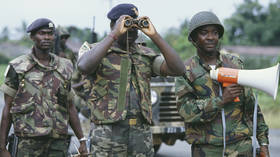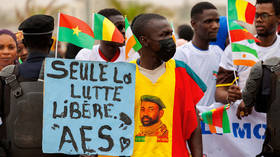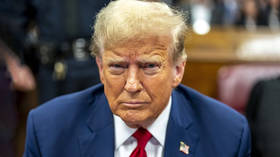Here’s how a joint African military force can do what the West couldn’t

The Sahel states have been facing numerous security challenges in recent years, such as terrorist threats, intercommunal conflicts, drug and arms trafficking, and difficulties relating to governance and economic development.
In light of this, the Alliance of Sahel States (AES), represented by new leaders Assimi Goïta in Mali, Ibrahim Traoré in Burkina Faso, and Abdourahamane Tiani in Niger, decided to establish a common force to enhance their capacity to combat threats and ensure the region’s security. The chiefs of staff of the three nations’ armies announced this on 6 March. The joint force will be led by Niger.
Several reasons motivated this initiative. First of all, the Sahel countries have observed the inability of national armed forces to address these security challenges alone, mainly due to their limited resources and lack of coordination. By establishing a common force, they hope to pool their efforts and resources to better combat terrorist groups and other threats facing the region.
The establishment of a joint AES force to address security challenges is a significant and necessary initiative in a region which faces many security challenges, such as terrorism, organized crime, and armed conflicts, often inspired by imperialist powers like the United States and France. These powers have a vested interest in persistent instability in this part of the Sahel region, which is rich in natural resources.
The three countries in the AES – Mali, Niger, and Burkina Faso – have experienced a rise in terrorism threats since 2011, following the NATO intervention in Libya that resulted in the killing of Colonel Gaddafi.
In fact, the establishment of the Alliance itself (the three states signed a charter in December 2023) already reflected a recognition of the need for Sahel countries to work together to ensure the security and stability of the region and to counteract any internal or external threat to their sovereignty. All three also cut military ties with France, citing meddling and the failure of French troops to defeat Islamic insurgencies in the region, despite more than a decade of involvement.
The leaders of the Alliance understand the urgency and the fact that they cannot rely on Western countries like France and the United States, who do not really seem willing to help fight terrorism, but rather seek to preserve their own geopolitical agenda in Africa, as they already do in the Middle East.
By establishing a common force, the Sahel states will be able to coordinate their efforts in a sovereign spirit, share information and resources, and carry out joint operations to combat security threats to their countries and to the region. Therefore, to work effectively, the Sahel states affected by this scourge must urgently adopt military agreements at the regional level with other Sahelo-Saharan countries or on the international scale with countries such as Russia, Iran, Turkey, etc., regarding specific acts of terrorism on their occupied territories.
The Alliance of Sahel States must decide on a number of measures, sometimes coercive but mainly preventive, to combat insecurity and terrorism within the framework of the alliance. There is a need to implement sanctions targeting individuals or terrorist groups. Parliamentary resolutions are to be adopted to strengthen national legislative, judicial, police, and military mechanisms, so they can better prevent and combat the recruitment, organization, or financing of these terrorist groups. Additionally, efforts should be made to combat arms proliferation.
Joint military operations among the Sahel states will also be required regularly instead of operations by American or French military forces in certain Sahel countries. Regional intelligence cooperation is essential, even if it remains sometimes non-existent in African countries affected by terrorism, or difficult due to underlying national interests.
However, one of the major problems faced by the states of the region affected by insecurity caused by terrorist groups is that they have almost no internal or external intelligence services, nor powerful counterespionage capabilities to anticipate attacks on their territories or against their populations.
Mali, Burkina Faso, and Niger should also focus on this method, as terrorism cannot only be fought with military actions but also by infiltrating, tracking down accomplices, and neutralizing leaders through secret missions. The fight against terrorism will not be won as long as surveillance and intelligence means are entrusted to former colonial powers like France.
There is one more important issue. While not forgetting social justice, in the fight against terrorism, a more comprehensive approach has to be taken through development plans, education, protection of property and population rights, and countering radicalization. If the Alliance of Sahel States and their regional partners do not address these crucial elements, the fight against terrorism and insecurity will lead to nothing but noise, posturing, and smoke and mirrors. The populations will continue to suffer, and territories occupied by the criminals will expand with each attack, despite the will of leaders and armies.
All these things will also help strengthen the capacity of local security and defense forces to face the complex and transnational challenges threatening the countries of the region. The fact that this force is led by Niger, and this was decided with no conflicts, shows the willingness of alliance members to cooperate and share responsibility for ensuring the security of the region. It is important to note that setting up a common force led by Niger will not be without challenges. Political, cultural, and institutional differences between alliance members are to be overcome, as well as mobilizing the human and, most importantly, financial resources necessary to support this initiative in the long term, which will yield results if implemented effectively by the Sahel states.
In conclusion, the establishment of a common force by the Alliance of Sahel States to address security challenges is a positive step in consolidating peace and security in the region. Hopefully, this initiative will contribute to strengthening regional cooperation and sovereignty, improving the security of the Sahel populations, and promoting economic and social development in the region.
The statements, views and opinions expressed in this column are solely those of the author and do not necessarily represent those of RT.














